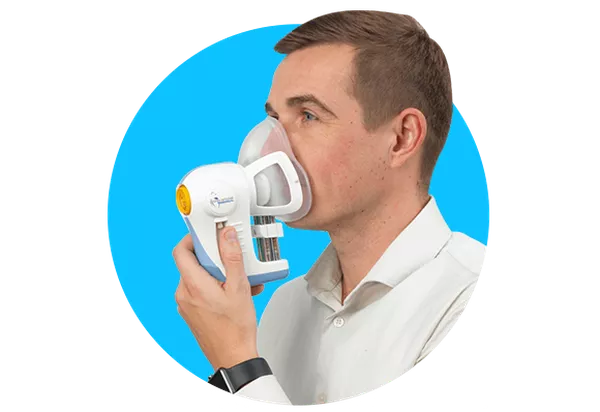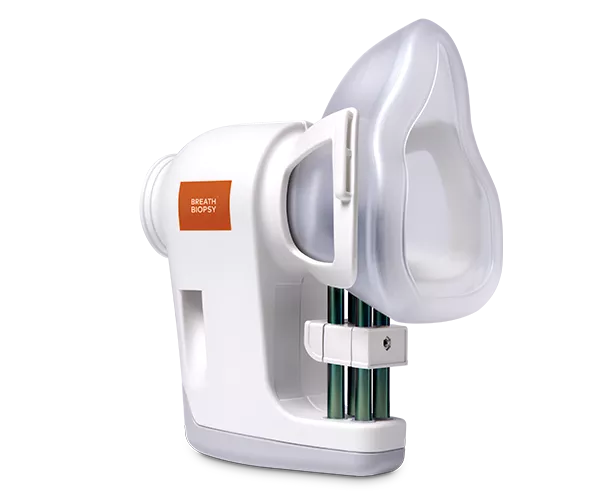
PAN: Pan Cancer Early Detection
Early Detection of biomarkers in multiple cancers
OVERVIEW
Detecting Cancer Early
The aim of the PAN cancer study is to evaluate the potential of Breath Biopsy to detect various types of cancer by profiling Volatile Organic Compounds (VOCs) on breath. This serves as a first step in a research program evaluating the use of a breath test in early detection of cancer.
The key parameter driving survival chances in patients with cancer is the stage at which the cancer is detected. Detection of cancer at its earliest stages, when it can be treated with curative intent, results in a dramatic improvement of survival rates whilst reducing treatment cost. Unfortunately, over half of cancers are detected when disease is more advanced, as early stages of cancer are typically asymptomatic. Internationally this paradigm has resulted in the implementation of national screening programs for breast, cervical, colorectal and lung cancer. The degree to which such programs have been implemented varies widely as they are typically associated with high costs, can be invasive and produce a high number of false positives results with consequent undesirable follow-up procedures and high resource utilisation. This has sparked ongoing debate about the utility of some of these programs and has prevented implementation of others. Therefore, there is a clear need for a low-cost, non-invasive and accurate test for early detection across a range of cancers.
The PAN study is a collaborative effort between Cambridge University Hospital NHS Foundation Trust, University of Cambridge, Cancer Research UK (CRUK) and Owlstone Medical.

CANCER TYPES
Cancer types in the PAN study
The PAN study will focus on seven cancer types and will initiate them over three staggered phases.
- Oesophageal
- Liver
- Gastric
- Pancreatic
- Renal
- Bladder
- Prostate
STUDY PROCESS
How will the study work?
Subjects are currently being recruited from Cambridge University Hospitals by local research staff. Breath samples will be collected by means of the ReCIVA breath sampler which requires tidal breathing into a face mask for around 10 minutes. A cancer free control subject matched for age, sex and tumour specific risk factors will be recruited and sampled. Breath samples will be shipped to Owlstone Medical’s central laboratory for analysis of breath biomarkers.
PAN is registered on the clinicaltrials.gov website under the identifier: NCT03756597

PROTOCOL SUMMARY
Summary of the protocol
- DESIGN
This study will be investigating subjects that have one of the selected cancer types and comparing them to a pool of control subjects.
- PRIMARY OUTCOME
Evaluating the potential of Breath Biopsy in the early detection of various types of cancer by profiling volatile organic compounds (VOCs) on breath.
- DATA ANALYSIS
Breath samples will be collected on-site using the ReCIVA breath sampler device and it’s collection station. The samples will then be analysed at Owlstone Medical’s central laboratory in Cambridge, UK.



